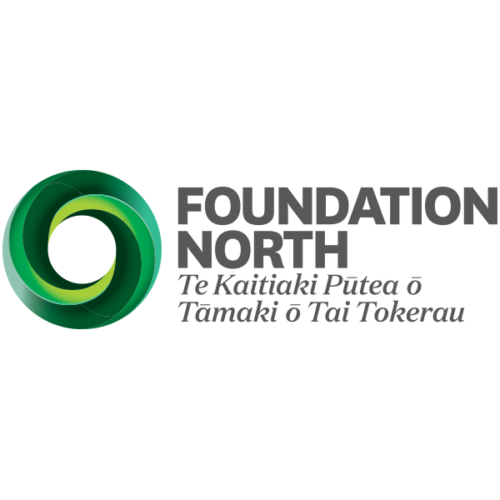It is with great pleasure that we announce the participants for the Waitaha Screen Development Incubator. We were thrilled with the quality of applications this year. The submitted projects were of a very high calibre, and we would like to thank all those who submitted their projects for consideration, and we’re sorry we couldn’t support more.
We look forward to supporting these talented screen storytellers and their projects through this development programme.
Participants will attend the Christchurch hub and online mentorship prior to the in-person pitch event to an invited industry audience at the Big Screen Symposium in Auckland on 4th and 5th of July 2025.
The purpose of this programme is to support the development of original IP in the region and to support creators to progress their projects to be equipped to seek other partnerships and funding.
This collaboration between Script to Screen and Te Puna Matarau helps continue to bring attention to the talent and potential within Waitaha, creating development opportunities to strengthen and support screen storytellers, their projects and the future of screen in the region.
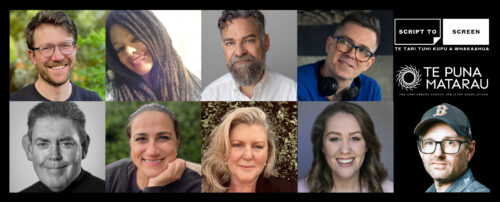
Congratulations to the following participants and their projects:
(pictured left to right)
The Waitaha Screen Development Incubator is made possible thanks to funding from the
New Zealand Film Commission, and NZ on Air.
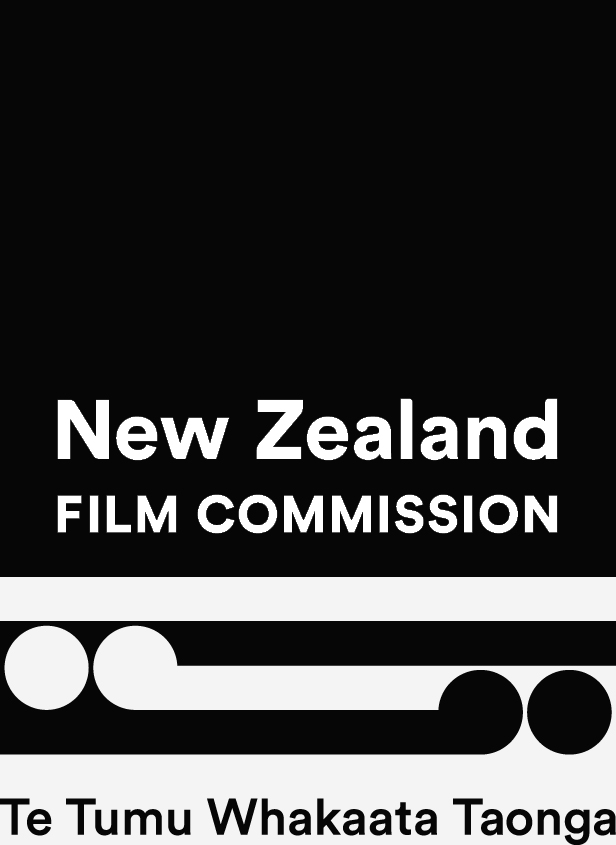

A Script to Screen Programme presented in partnership with Te Puna Matarau.

Kotahi kapua ki te rangi he marangai ki te whenua **
One cloud from the heavens brings rain and nourishment to the parched land
nā tauira o Te Ataarangi
Script to Screen and Compton School are delighted to share the exciting news that Vista Foundation have come on board providing additional for support our Rainmakers Aotearoa programme. Thanks to this generous support, we have been able to provide mentorship for a further 6 practitioners!
“The Vista Foundation is delighted to support the Rainmakers program with the backing of Script to Screen and Compton School. The mix of attendees, mentorships and an excellent presenter lineup met our goal of building the skillset of participants which will help to support a sustainable NZ film industry.”
These six participants were chosen from our original application and selection process.
With the addition of the six new participants, the first Auckland hub was held on Friday 14th of March, and it was a huge success. Guest speakers included Rachel Anthony, Matthew Liebmann, Sue Maslin, and Tom Hern, and along with the expanded cohort everyone involved brought rigor, depth, and thoughtful interrogation throughout.
Mentorships for many participants are now underway, and we look forward to continuing this mahi as the year progresses.
Script to Screen is committed to continuing to develop and deliver development programmes that meet the needs of the screen sector of Aotearoa. This collaboration with Compton School has once again delivered an exceptional workshop and we look forward to continuing this kaupapa in the coming months.
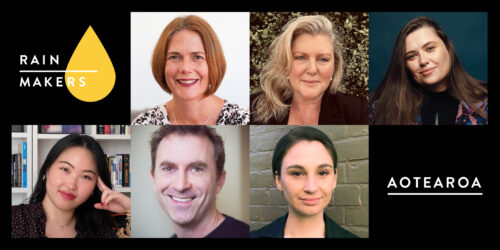
Please congratulate the new additions selected for Rainmakers Aotearoa:
(pictured left to right)
Once mentors have been selected and matched, Script to Screen will publish them alongside the mentees.
Rainmakers Aotearoa will harness the knowledge of a generation of exceptional individuals, and through a co-designed approach, support the transfer of knowledge.
Script to Screen is committed to continuing to develop and deliver development programmes that meet the needs of the screen sector of Aotearoa.
* This whakataukī is from a waiata composed by early members of Te Ataarangi in honour of Dame Kāterina Mataira and the kaupapa of Te Ataarangi in Te Reo language revitalisation – which continues today. It describes how a single person or kaupapa (kotahi kapua) can have great impact, just like one lifegiving rain shower on the parched land.
Rainmakers Aotearoa is a Script to Screen initiative run in partnership with Compton School.
Rainmakers Aotearoa is possible thanks to generous support from Te Tumu Whakaata Taonga New Zealand Film Commission, and Vista Foundation.

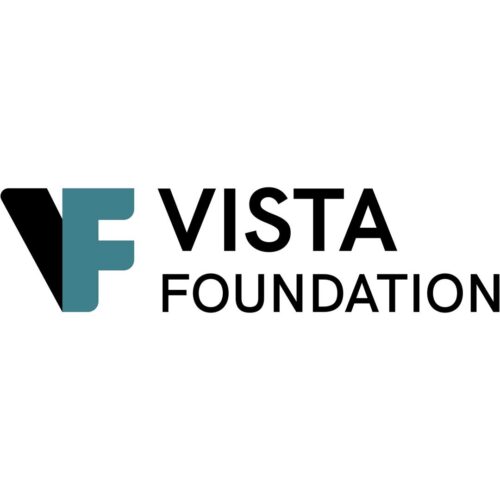
“The best family film since Babe”
David Stratton Australian Film Critic
Join Script to Screen for a special screening of the Australian box office hit film Runt, followed by a conversation with Director John Sheedy and STS Executive Director Dale Corlett.
This is a family friendly movie and for less than the cost of a coffee each, we encourage you to bring your family to the screening and Q&A.
Hear about John’s journey from theatre into feature film directing including the unique journey this film took from book to screen, and see if it’s true why they say “never to work with children or Animals” or in this case Dogs.
Monday 3rd March 2024
6:30 pm – 8:00 pm FILM
8:00 pm – 8:30 pm – Q&A
The Capitol Cinema, 610 Dominion Road, Balmoral, Auckland 1041
Following the screening and conversation, there will be time for networking.
$5.75 (incl. GST) for sales via Humanitix to secure your seat.
ABOUT OUR PANEL
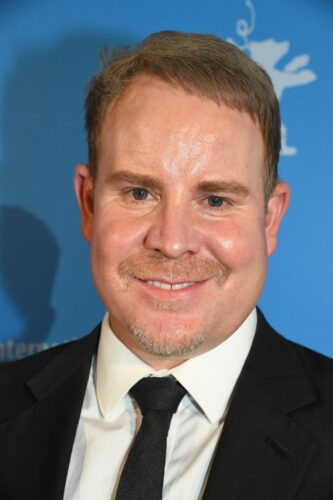
SPEAKER: John Sheedy – Director
John Sheedy is a multi-award winning Australian film, television, theatre director and writer.
His first feature film, H is for Happiness for Cyan Films, Universal Pictures Australia and Level K, premiered at the 2019 Melbourne International Film Festival, and won the prestigious Film Prize at Cinefest Oz. The film’s international premiere was at the Berlin International Film Festival in 2020 and it went on to receive a Special Mention by the Children’s Jury in the Generation Kplus section. John’s first short film Mrs McCutcheon won best Australian Short Film at the Melbourne International Film Festival 2017 and was invited to over 130 Festivals globally, winning 47 festival awards on the way through. He also received the award for Best Director at the 2018 Australian Directors Guild Awards.Most recently, John was set up director on the ABC drama series In Our Blood and Paramount Plus’s new teen drama series More Than This. He also directed a short film called Tarneit which is currently screening all over the world and has so far picked up 15 wins, including the prestigious IRIS Award in Wales and has received several nominations. John is currently attached as writer and director for the Screen Australia Funded feature 10 Moments, produced by Big and Little Pictures. John directed the new feature film Runt based on the Craig Silvey novel of the same name for See Pictures. Since it’s release Runt has become the third biggest local film of the year.
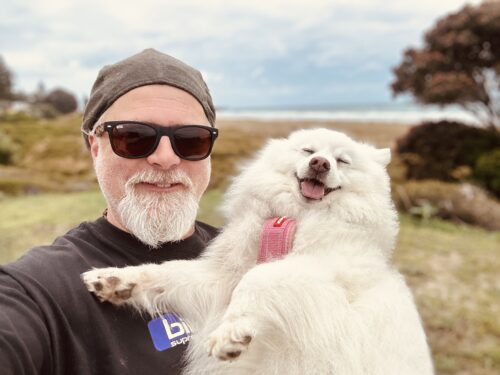
MODERATOR: Dale Corlett – Script to Screen Executive Director pictured with Akiko
Prior to joining Script to Screen in 2024, for 9 1/2 years he was the Head of Talent Development at the NZFC. During this time over 80% of the filmmakers supported through the various NZFC short films programmes have progressed into development or production on their feature films and tv shows. Dale was the CEO/Creative Director of GMAC Film in Scotland, responsible for identifying and developing high quality emerging talent and supporting their progression from shorts to features and developing careers. He was also proactive in the creation of innovative, diversity-led and gender focused talent development programmes across Scotland and the UK. He is a graduate of Toi Whakaari New Zealand Drama School who has worked as a director, actor, producer and writer. He was nominated for a Scottish BAFTA Best Director Award in 2009 for his debut feature film, Running Traffic.
This screening is made possible through the generous support from the film’s distributor Studio Canal, The Capitol Cinema and through Script to Screen’s ongoing core funding from Te Tumu Whakaata Taonga NZ Film Commission
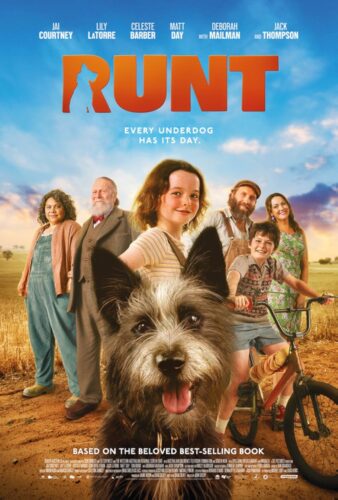
A Script to Screen Programme presented in partnership with Te Puna Matarau.
This unique development incubator is now open for TV series (scripted or stand-alone documentary) and Feature Film (scripted or documentary) projects in development that are planning to be filmed and produced in Waitaha Canterbury.
The purpose of this programme is to support the development of original IP in the region and support creators to progress their project to be equipped for funding and production.
Image: Lincoln Mechanics cnr West Belt and Gerald Street – Image from The Lincoln Project by Kelly Shakespeare
Script to Screen in collaboration with Film Dunedin, DCC Creative Partnerships, and the Otago Community Trust presents Screenwriting: What Producers Need to Know a two day workshop delivered by renowned Australian script editor/EP/creative producer Claire Dobbin.
Getting to work with Claire Dobbin is a rare opportunity for those committed to investing in themselves, their creativity, and their future as screen story tellers. Designed for producers, writers, HOD’s and other key creatives, Claire has developed and delivered workshops worldwide.
Effective collaboration is one of the key pillars of a screen storytellers toolkit, and is essential for all crew, whether they be above or below the line. The workshop will cover:
Advanced preparation of approximately 16-24 hrs is required. Participants will have a curated watch list and script reading to complete. These case studies will form an integral foundation for the analysis and discussion undertaken over the weekend.
This workshop was initiated by Film Dunedin and made possible thanks to generous support from Film Dunedin, Film Otago Southland, University of Otago, and Ara Toi Creative Capabilities to help build creative capability in the Otago and Southland regions.
When and where:
Saturday 1st and Sunday 2nd March 2025
9:00am – 5:00pm
Centre for Innovation, Seminar Room
87 Saint David Street, Dunedin North, Dunedin 9016
Cost:
Was: $85 Now: $20 Total *
On both days morning tea and afternoon tea provided, BYO lunch.
* The unique value of this workshop is recognised by Ara Toi, with subsidised places available thanks to the Ara Toi Arts Capability Fund.
Note: Places are limited. In order to complete the online registration you will be asked a series of short answer questions. You will be notified at least 2 weeks prior, if you have gained a place within the workshop.
ABOUT PROGRAMME MENTOR
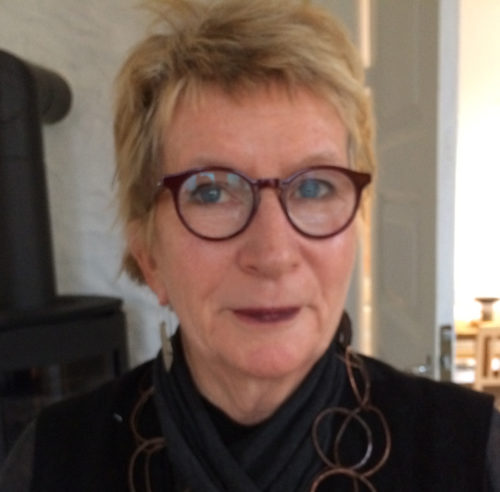
CLAIRE DOBBIN
Claire Dobbin is a script editor/EP/creative producer who works globally with development agencies, screenwriters, producers and directors. Claire is also –
Claire devised, and secured the funds for:
In 2017 Claire was awarded an AM for Services to the Australian Film Industry and in 2019 Claire received the Jill Robb award for outstanding leadership in the Victorian Screen Industry.
Claire is currently the Executive Producer of a number of films including Shit – a film based on the acclaimed play of the same name. She is also script editing a number of international feature films and TV series in Europe, India and the US.
Script to Screen also receives core funding from Te Tumu Whakaata Taonga New Zealand Film Commission.

Script to Screen in collaboration with Film Queenstown Lakes presents Screenwriting: What Producers Need to Know a two day workshop delivered by renowned Australian script editor/EP/creative producer Claire Dobbin.
Getting to work with Claire Dobbin is a rare opportunity for those committed to investing in themselves, their creativity, and their future as screen story tellers. Designed for producers, writers, HOD’s and other key creatives, Claire has developed and delivered workshops worldwide.
Effective collaboration is one of the key pillars of a screen storytellers toolkit, and is essential for all crew, whether they be above or below the line. The workshop will cover:
Advanced preparation of approximately 16-24 hrs is required. Participants will have a curated watch list and script reading to complete. These case studies will form an integral foundation for the analysis and discussion undertaken over the weekend.
This workshop was initiated by Film Otago Southland and also made possible thanks to generous support from Film Otago Southland, Film Queenstown Lakes, and Central Lakes Arts Support Scheme (CLASS) to help build creative capability in the Otago and Southland regions.
When and where:
Saturday 22 and Sunday 23 February 2025
9:00am – 5:00pm
Building 11, Dart House, Remarkables Park Town Centre
12 Hawthorne Drive, Frankton, Queenstown 9300
Wheelchair Access is available. If you require special assistance, please let us know.
Cost:
Was $85 Now $20 Total * Tickets have been generously subsidised by Film Queenstown Lakes
On both days morning tea and afternoon tea provided, BYO lunch.
Note: Places are limited. In order to complete the online registration you will be asked a series of short answer questions. You will be notified at least 2 weeks prior, if you have gained a place within the workshop.
ABOUT PROGRAMME MENTOR

CLAIRE DOBBIN
Claire Dobbin is a script editor/EP/creative producer who works globally with development agencies, screenwriters, producers and directors. Claire is also –
Claire devised, and secured the funds for:
In 2017 Claire was awarded an AM for Services to the Australian Film Industry and in 2019 Claire received the Jill Robb award for outstanding leadership in the Victorian Screen Industry.
Claire is currently the Executive Producer of a number of films including Shit – a film based on the acclaimed play of the same name. She is also script editing a number of international feature films and TV series in Europe, India and the US.
Script to Screen also receives core funding from Te Tumu Whakaata Taonga New Zealand Film Commission.

On behalf of everyone here at Script to Screen, we wish you a safe and happy holiday season!
We know from experience that taking time off can be hard for creatives but we want to encourage you all to rest, relax, recharge and spend time with whānau and friends so you’re ready for all that 2025 has in store.
The Script to Screen office will be closed from Friday, 20th December 2024, staff will be back from the week of the 6th and the office will re-open on Monday, 13th January 2025.
We want to thank everyone, who attended a workshop or talk, applied for a programme or sent an email enquiry, we also want to thank all of the contractors, programme participants and our amazing funders who have allowed us to continue to share our mahi with you all.

Stay safe, stay well and we’ll see you next year!
Thank you to our Script to Screen Funders: Te Tumu Whakaata Taonga New Zealand Film Commission, Foundation North, Images and Sound, Albert-Eden Local Board, and Creative Communities NZ.




![]()
Image 1: Story Camp 2024
Image 2: Southern Pilots
Image 3: Kōpere Hou Fresh Shorts 2024
Image 4: South Shorts 2024
Image 5: Far North Youth Filmmaking Workshop
Image 6: Far North Adult Scriptwriting Workshop
Image 7: South Auckland Screenwriting Workshop
Image 8: An Introduction to Narrative Design with Alexander Swords – Workshop



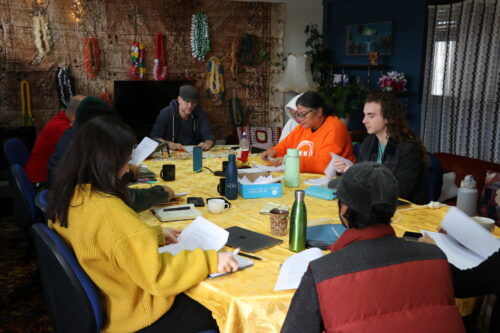
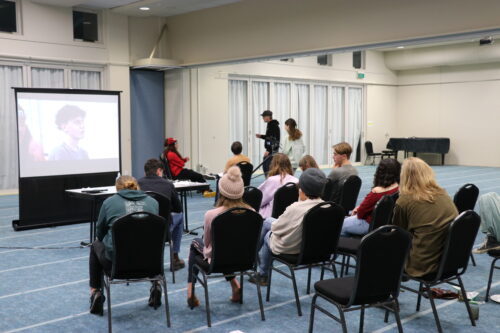


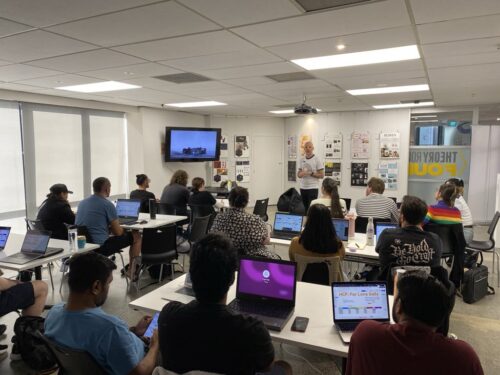
Story Camp Aotearoa is a residential development lab for feature film that fosters craft, voice and exceptional storytelling. The programme is designed to meet the development needs of each writer and project. It provides a framework and environment that enables films to be rigorously developed, elevated and supported. Over the week, the participating writers and their collaborators workshop their feature film projects with exceptional local and international advisors.
The selectors had an incredibly difficult job in assessing the feature films submitted. We thank and value all the filmmakers who took the time to apply for this opportunity. Thank you for sharing your stories and aspirations with us.
Script to Screen is delighted to announce the filmmakers and their projects selected for Story Camp Aotearoa 2025. Huge mihi to our funders Te Tumu Whakaata Taonga New Zealand Film Commission for continuing to support this unique development kaupapa.
This year, we are excited to announce that through Script to Screen’s partnership with VicScreen in Australia, we will have a ninth team, Melbourne-based film Scorpio writer/director Allanah Avalon and producer Gabrielle Pearson attending Story Camp. This welcome addition will add another aspect of collaboration and community within the programme, and we hope to bring more international collaborations to this kaupapa in the future.
The team at Script to Screen is humbled by the mahi that has already taken place across the selected projects, and we look forward to helping to support and uplift them and their filmmakers during this residential development lab.
Congratulations to the filmmakers whose feature film projects will be developed through Story Camp Aotearoa 2025:
READ MORE ABOUT THE TEAMS HERE
Script to Screen is working in partnership with VicScreen in Australia, for Melbourne-based film Scorpio writer/director Allanah Avalon and producer Gabrielle Pearson to attend Story Camp.
![]()
Story Camp is made possible thanks to funding from the New Zealand Film Commission.

After 10 years of support from Foundation North, we are proud to open applications for the 2025 South Shorts Script Mentorship programme. This programme will continue to support new and emerging screenwriters from the South Auckland community* to enhance their screenwriting capabilities. Take the leap and submit your story ideas to be a part of this unique development opportunity. South Shorts will help you develop your story idea/s (short film or web series), write a script, share your unique perspective, and advance your screenwriting career within a supportive framework.
During this six-month mentorship programme (Dates to be confirmed; likely May-September 2025), you will attend a series of Saturday hubs alongside like-minded creatives, be led through focused script development and receive one-on-one feedback under the guidance of writer, and director Briar Grace-Smith (Cousins, Waru). Briar has mentored the past 7 years of South Shorts, and she brings considerable experience and knowledge from her own projects.
The hub days are shaped based on the groups needs and involve script read-throughs, writing exercises, and hearing from guest speakers about their experiences making films. We also look forward this year to adding sessions around pitching ideas, funding, working with actors and further development tasks to the programme as required.
On completion you will leave South Shorts with new skills and tools to develop your work, a great new network of like-minded practitioners, a completed script, and greater confidence in yourself as a screenwriter.
We welcome applications from past participants of the South Shorts programme, who wish to develop a new script idea and are still recognised as new and emerging screenwriters.
This year we will also be accepting video applications to help expand the accessibility of our application process.
Opens: Monday 16th December 2024
Information Webinar: 5 pm – 6 pm Tuesday 11th February 2025
Closes: 1 pm, Monday 3rd March 2025
“The confidence that participating in South Shorts has instilled in me as an emerging filmmaker cannot be understated. Briar and Script to Screen create such a safe space for us to grow as writers at our own pace and to tell stories that otherwise wouldn’t get told in Aotearoa. Whatever is next on my filmmaking journey, I can thank South Shorts for helping to build me as a writer and filmmaker.”
– Claire Patolo, South Shorts 2024 Participant
About you: (Either a written application or video submission outlining the below.)
About your project:
Optional material:
Who is eligible?
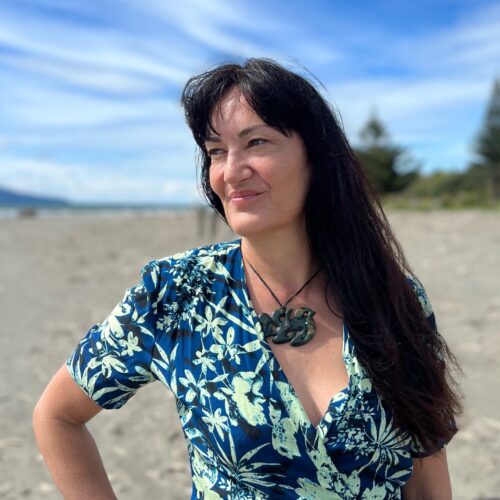
Briar Grace-Smith is of Ngā Puhi descent and a writer of short fiction, stage plays and feature films. Her plays include Ngā Pou Wāhine, Purapurawhetū and When Sun and Moon Collide. She is an Arts Foundation Laureate and was recently made an Officer of the New Zealand Order of Merit for services to film, television and theatre. She has worked as a Development Executive for the New Zealand Film Commission and taught ‘Writing for Theatre’ at IIML (2015). Briar is a Sundance alumni and the writer of the feature films The Strength of Water and Fresh Meat. Her television credits include Fishskin Suit, Being Eve, Kaitangata Twitch and the Australian children’s television series, Grace Beside Me (2017). She was a director and co-writer of the short film, Nine of Hearts, and wrote and directed Charm for the feature project Waru (2017). She collaborated with Toi Whakaari, directing Krystal, a short film by Josephine Stewart-Te Whiu. She was the screenwriter and co-director of the feature film Cousins, and is a writer and co-director of Rūrangi, Series 2. Briar was made a member of the Directors branch of the Academy in 2022.
The South Shorts Mentorship Programme is made possible thanks to generous support from Foundation North.
Since 2009, Script to Screen has proudly delivered 18 workshops throughout Northland and the Far North. Nurturing the talents of young filmmakers from Hokianga, Rawene, Whirinaki, Kaikohe, Kerikeri and Whangārei.
Each session provides a unique experience, fostering skills in writing, directing, and producing and acting while also offering an opportunity to connect with other creatives.
Given our extensive experience and expertise in developing people’s creativity and their projects, Script to Screen recognises the essential role filmmaking and the wider arts play in people lives.
We disagree with the recent government kōrero that the arts are a “nice to have”. From our experience, we understand the true value creative development programmes and workshops like the ones that Script to Screen run have for the individuals participating in them, along with their wider community. That is why we are committed to continuing to offer this unique create pathway within Northland for the next generation of screen storytellers to develop their skills and creative voice.
Film still, taken from Qianne Titore’s short film NATALIE.

The 2016 Hokianga Filmmaking Workshop served as a platform for young voices to be heard. Qianne Titore’s short film NATALIE went on the screen at the Wairoa Film Festival and New Zealand International Film Festival.
Qianna Titore (Ngāti Hau, Ngāti Kaharau) went on to graduate from AUT with a Bachelor’s of Communication Studies in Television. She is the youngest filmmaker selected for the NZ international film festival with her short film NATALIE, made in the Hokianga as part of a filmmaking workshop run by Script to Screen. Qianna also won Best Documentary/Pakipūmeka Mātua for Wāhine Toa at the 2019 E Tū Whānau Rangatahi Film Award.
Founded in 2007 Script to Screen has seen the evidence of the positive impact the arts has in communities across Aotearoa, and is committed to fostering opportunities for young talent to thrive through participating in filmmaking.
The impact of these specific workshops is reflected in the words of our past participants:
“Having a creative space that gives youth an accepting and open environment to express themselves leaves a positive effect. Initiatives like this should be held all over the country.” — Workshop Participant, 2020
“This workshop is important to young people in Northland as it allows them to gain a better understanding of the film industry and how to develop their own skills.” — Workshop Participant, 2020
“Kids aspiring to be part of the film industry need access to amazing workshops that bring together a like-minded community. I’ve left feeling like I have knowledge that can only be taught in person.” — Workshop Participant, 2023
As we head into the new year, Script to Screen are excited to announce, thanks to the continued support of Foundation North, we will continue our creative journey with the Northland Film Workshops coming back to Whangārei for the 6th year in 2025!
The Northland Film Workshops consist of a four-day programme aimed at young people aged 14 to 17 and a one-day adult workshop for people 17+, funded by Foundation North and brought to you by Script to Screen.
The workshops mentioned were made possible thanks to generous support from Foundation North.
